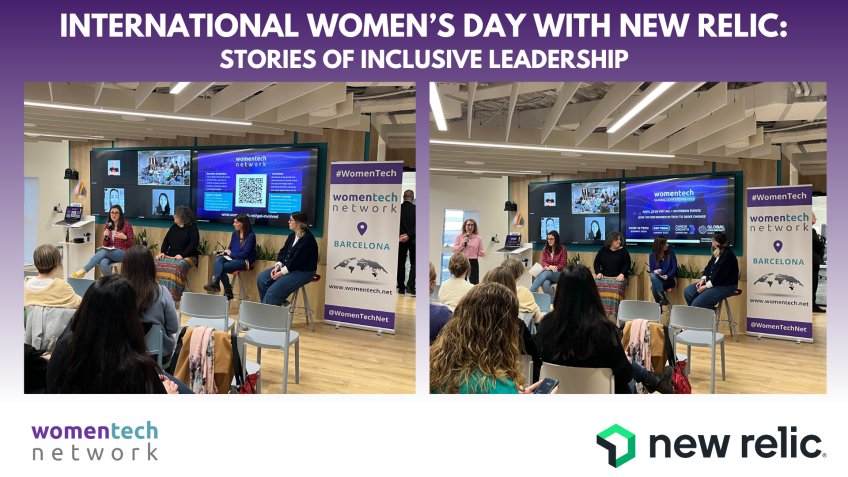Cristal Bukler - Use your non-technical background to boost your early career in tech
Career Building in Tech for Non-Technical Enthusiasts
Hello and welcome to my session "Using Your Non-Technical Background to Enhance Your Early Tech Career." In today's techno-centric job market, it's common to feel overwhelmed or underqualified, particularly if you come from a non-technical background. However, you shouldn't allow this to deter you; instead, embrace the distinctive advantages that your unique experiences offer.
My Story
I'll illustrate my point by sharing my journey as I'm Crystal from Buenos Aires, Argentina. Currently, I'm the partnerships manager at ASU Hotel Chatbot, a Brazilian Company. My career prior to this was entirely non-technical - I was in the hotel industry, working as a receptionist and a concierge.
With the pandemic altering the job landscape, I managed to leverage on my previous experience and secure a role in the tech-enabled hospitality industry. Throughout this twist in career paths, my past expertise has been incredibly valuable, enriching my present work and fortifying my path into a tech-oriented career.
Leverage Your Experiences
With my own transformation as proof, I truly can't stress enough just how beneficial your individual experiences can be for your professional growth in tech. Be it managing numerous profiles, facilitating an event, or even merely communicating effectively; each and every one of these skills acquired in non-tech roles can be valuable for a tech-centric occupation.
Pave Your Path & Know Your Category
In order to find a job you love, it is important to know your worth and understand the value you bring to the table, so you can effectively demonstrate it to potential employers. This involves digging deeper into your past job positions, recognizing the skills you acquired, the activities you excelled in, and the unique value you brought to your roles.
Another crucial aspect is defining your category. Your category defines your professional personality, giving recruiters the ability to easily identify your skills and specialties. Whether you're a backend aficionado or a user interface designer, demarcating a clear category makes it easier to position and market yourself appropriately.
Position Yourself and Raise Your Pitch
In the bustling tech industry, having a magnetic professional presence is imperative. Positioning yourself successfully means building authority in your chosen field and having a clear positioning statement that highlights your unique value proposition. Moreover, knowing how to pitch oneself effectively is vital. Remember, when you are pitching, you are marketing your brand that is you. Building valuable connections, networking effectively, showcasing genuine interest - are all key aspects to raise your pitch and make an impact in the tech industry.
Final Thoughts
Transitioning from a non-tech role into a tech-focused career can seem intimidating initially. However, as I have personally experienced, every unique experience you have collected on your journey enriches your tech career. Combine your experiences with a well-defined category and a compelling pitch, and you'll have laid the groundwork for a successful tech career.
Whether you believe it or not, you have everything you need to make your mark in the tech industry. Your unique experiences and skills are your golden ticket - all you need to do is learn how to leverage them.
If you have further questions, please feel free to email me or schedule a call. I'm here to support you in every way that I can. Don't hesitate to reach out. Best of luck with your tech career transformation!
Video Transcription
Uh Hi, everyone and welcome uh to my session. Use your non technical background to boost your early career in tech. Uh I'm super grateful and happy to be here with you. Um And, and hopefully you will find this session uh useful for your, for your career and life.I wanted to start this session uh mentioning or, or, or put this sentence, this quotation. Uh not sure who say this. Uh uh Google say it's anonymous, but I wanted to share because it's so true. It's not what you have. Uh It, it doesn't really matter, but what really matters is what you do with the things that you have. I firmly believe in this statement because I'm an example of this and I will show you later. Um But it's, it's cool to know that it doesn't matter the, the current or the past experiences that you have, it doesn't matter your background, you can make it in tech regardless of that. Um Especially uh well, this session is especially made for those who uh comes from non technical positions or uh industries. So uh my name is Crystal. I will introduce myself. Uh I'm based in Buenos Aires, Argentina. I'm currently the partnerships manager at ASU Hotel Chatbot, uh Brazilian Company.
I'm also a per learner. I'm learning to go right now. And in the past I was hotelier. This means that I was working at hotels as receptionist and concierge. And uh on a side, I uh I do volunteer work as a mentor of junior developers at Micro Code. Uh My code is based in Barcelona. It's a nonprofit that teaches to go to uh refugees and immigrants and I share with them all uh what I know um in terms of both the technical and the soft part because my past experiences um I, I try to, to together my past experiences and bring them into my, my presence to uh build uh a new caren technology regardless of the fact that I was a hotelier um before.
So uh as you can see in this image, uh And as I mentioned before, I was working at hotels and when this pandemic started back in 2020 I found myself sharing insights uh in a travel tech. It is a tech event um that we have in hospitality and it's pretty cool because I never imagine myself working uh remotely or working in tech or sharing insights in technology when actually my background has to do with manual stats. Um Of course, I was using computers as you can see uh here. Um But of course, it's pretty, pretty different than uh a technical uh position, even though I'm not in a technical position right now because I, I am a partnerships manager. But of course, uh the fact that I'm learning to code allows me to come here and share with you some uh some insights, some tips and tricks um on how to, on, on how you can make it in tech actually, regardless of your uh of your background. So what you are going to learn today, uh you are going to learn how to make your experiences count. This is really, really important um especially if you're applying for a new position and also how to brand yourself to make it in tech. And I would love to mention something. Uh Well, two things actually, the first point is that I'm a Spanish speaker. So please excuse me if uh I make mistakes in my, in my speaking today.
And the second aspect is that um oh, if you have any questions, uh or any doubts, you can uh connect with me at the very end of this session. So uh I can, I can guide you better. OK. So the first point uh or the first, the first aspect to have in mind when you are just getting a star in tech is discover your why? Why does it matter? Well, it will act as your guide and motivation, especially when you are rejected by companies. Normally, when we apply for a new job, uh that we don't have previous experience on. Um and especially our background has nothing to do with this new job description. We get lost. We feel like, oh, they won't hire me because I don't have experience in this field or because I, I'm not good at closing maybe my background, it's not going to be helpful. Well, if you know your why, if you know why you are doing what you're doing, um this will actually be a super motivation for you to actually help you uh move forward. So how can you discover your wife? And Simon Syne is expert here, not me, but something that helped me uh is to actually ask myself, why am I learning to code? I mean, why uh I'm learning this? Why I want to uh programming something? And what's the reason behind it? This is really important.
So a pro tip here, you can list all the reasons and motivations, desires, aspirations that you have um that you may think, oh I'm I'm doing this for this for this. And for that reason, this will be uh again, this will be your guide. And it's important that you discover this way. Um in order to uh move, move forward in your career. The second aspect is learn about your path. This is also really important. It matters because if you want to apply for your dream job, let's say, uh you must know yourself enough to show your potential, recruited the value you can have is important because when we apply for a new job, we normally tend to think uh oh, how many money I will get, uh, or I will make uh oh, how many experiences I will gather here.
Well, the most important thing is the value that you can add to that company. Again, it doesn't matter your background. The important thing here is the value you can add and you can use your past uh your past experiences to actually get there and discover this uh unique thing that you have that could be available in this company. So you can ask yourself uh what was my last job position? This is the name in fasi. Let's say you can uh you have to actually give a name to this position. And what kind of activities did you perform in the past that maybe could be helpful uh or could be relevant in this new position you're applying to. So again, as the same tip, you may a list of every single position uh and activities you perform, the achievements you have. Uh normally you will find these tips when, when you are building your reum. This is exactly the same thing. This is how you learn about your past experiences. And this is how you try to find common uh common ground with your past and your present to make it in tech. The third aspect is giving yourself a category.
This is really, really important as well, because the category you choose will define you as a professional and will make easier for recruiters to find you again. Uh I mentioned that this is important because if you don't have a category, you will be a ghost in your industry basically. So you can ask yourself, what do I want to be known for key question to define your category? Also, what kind of skills or knowledge did you learn in the past that now could be useful as a developer? And please take into consideration that I say developer because I mentor junior developers, but this could be applied uh for any other uh technical position, of course. So give yourself a category to find yourself as a professional in your field uh of expertise in your industry and you won't be a gust, this is also important. Uh And here you have some examples of categories again as developers um that maybe it could be uh as it could be a guide for you in the future to discover your category. So if you are a software developer and you have a backend preference, then you are a software developer with a backend preference, right? And your category is backend.
So recruiters will see uh chin in that you are not looking for uh U Eu X or back front, uh sorry, front, uh front end design. Uh You are actually looking for the back end because you have experience and knowledge in that and this is uh your category. So you are defined as the back end um expert. We, we get we can call it that way. You can also be a junior developer and user interface designer and you can be a web developer and user experience researcher. Of course, uh you don't have to actually lie because it's not the idea here but uh define uh your category in terms of what am I passionate uh for? And then uh try to put that a name. So this is how you define your category. The four aspect, which is also important is to position yourself. And this is uh important because this will give you authority in your field, in this new field or your current field could be applied in both in both aspects. So you can ask yourself, how do I want to be introduced by people? I mean, if you don't want to be a ghost in, in your industry, uh your current or your new industry, um you must uh give yourself authority position by positioning yourself. This is also a very, very important and I put myself as an example because I always talk about um I always say I'm not a certified coaching career development, but I love putting myself as an example because I change my jobs thousands of times literally.
So I, I put myself uh as an example here uh in terms of how uh that positioning statement works. So if you go through my lensing profile. You will see that before uh before this, before my current position, I put it's all about empathy and I am a fan of Brene Brown because she's always talking about that. I feel very identified with her statements and her research about how empathy works. And I form a belief that empathy is the most important thing, especially in hospitality because it's all about soft skills, it's all about providing experiences. So I want to be known for as someone who talks about empathy, even though I'm not Bernie Brown. But I love uh I love to mention empathy and demonstrate empathy actually with every single person that is in touch with me across the industry. It doesn't matter if it's a guest, a traveler, a potential client, uh a colleague, my boss, uh any person that is in touch with me will be treated with empathy because I position myself as that because that's something I believe. So you can position yourself in your field uh in your industry. Um And you can use this as the guidance like not my example.
But I mean, you can um you can think about those skills you have or something you're very passionate about or a belief that you have, for example. So if you believe strongly in something, then you can use that as your position in a statement and the five aspect uh is let others know about it. And when it comes to letting others know about it. Uh I talk about pitching yourself. I talk about doing networking. Networking is I think uh one of the key things uh in, in any industry, especially in tech. Um because as, as I put this, it's not what, you know, it's who you know. And so you can be actually the best developer out there, the best engineer, software engineer. Uh But if you are not connected with the right people, it will make it hard for you to actually uh get the position that you want. So how you can um start not working or how you can uh letting others to know about it about your, your, your your profession. I mean, so the first aspect is know your worth because of course, if you don't know uh the things that you did in the past that could be helpful.
Now, if you don't know yourself well, if you don't look uh yourself um in a reflective way, then all the people won't know anything about you. Of course, especially recruiters. So first know your worth and then be a giver once that you discover the things you are good at. Uh once you discover uh how your past experiences could be helpful. Now, then you could be a giver. You become someone who is giving all the who is sharing knowledge with others, uh especially this is something true with um as we call them money um on lending thought leaders, people that is always sharing their knowledge and is always sharing for free um their thoughts and the things they believed in and their mission, et cetera.
So if you do this, if you become a giver, then uh you will get the chance to connect with people who may think the same as you as we call them like man people. And in this way, uh it, it will make easier for you to get to know in, in the industry and then uh show a genuine interest and the other person, this is especially true when you are um when you are uh looking for a new position, uh if you're applying for this new job, you must show a genuine interest in the company in this case and in the, in the recruiter as well, uh because otherwise they won't show a genuine interest uh in you.
So sorry, I'm speaking fast. I only have uh five minutes left. Um But again, I, I just explain a little bit about uh this main point. Um So today we talk about the, the importance of knowing your, why, how to use your past experiences, how to define your category, position yourself on the importance of pitching. And, but of course, there are thousands of things uh especially for those who use uh lending. Um And we have more techniques on how to pitch yourself, how to use storytelling to get the job that you want, how to brand yourself across different channels because as you may know, um most of us use Linkin but all the people use Facebook and Instagram, especially developers use github.
Um Other, there are thousands actually of different channels uh when it comes to to web development, for example. Um So how you can use all those different channels? What kind of content you must share, how to make it actually? Well, this is an entire different uh universe. Um And of course, I will be more than happy to share all this knowledge with you. Uh You can visit my side, you can connect with me on linkedin uh or you can scan this code uh and, and schedule a call with me. Um I'm I'm al I'm also, I need to mention this. I'm also a mentor here at uh woman Tech. So yeah, if you want to learn more about these topics and have my uh my, my, my guidance on how to make it in tech, I will be more than happy to share all this knowledge with you. So, thank you so much. Um I would love to see I have four minutes left, so I spoke too fast. So thank you, Natalie and Kendra and Andy. Thank you so much. Thank you so much. Uh It makes me so happy to see all of you here. Oh, good question, Isabella. What does your day to day as a partnership manager look like? Well, basically the most important thing as a partnership manager is to build connections, uh is to, to, to build a relationship with those tech companies that we partner with.
Um And well as I position myself as a, as an empathy uh person, um This, this allows me to connect with them and this allow me actually to, to have this position. So, uh and this is why positioning yourself is really important. Um In, in my case, I didn't have previous experiences um as a partnerships manager. But the fact that I love building meaningful connections helps me to uh be in this position and I'm learning every day by the way. Um But yeah, I, I don't know if I answer your question, Isabella. Uh But thank you so much for asking. Um Thank you so much, Debbie. Yes, Veronica empathy is, is really important, really, really important, you know, perfect. Well, if you're looking for a mentor, I'm more than eager to connect with you Veronica. So I will put here my li in because some people don't uh don't find me because of my last name. So you can connect with me here. So this is my lien. And again, thank you so much uh for those who join. I was extremely nervous uh because this is my very first conference uh in English. Um I'm always nervous when I speak English. So thank you. Thank you so much. And Patiki here, thank you so much. Uh So you already have my my landing. If you want to discuss anything else, I'm always open to, to have uh discussions. Thank you so much and the great English. Thank you so much. Thank you, Sabella. Very nice to meet you.





